Updates from the field #13: Flattening the curve together
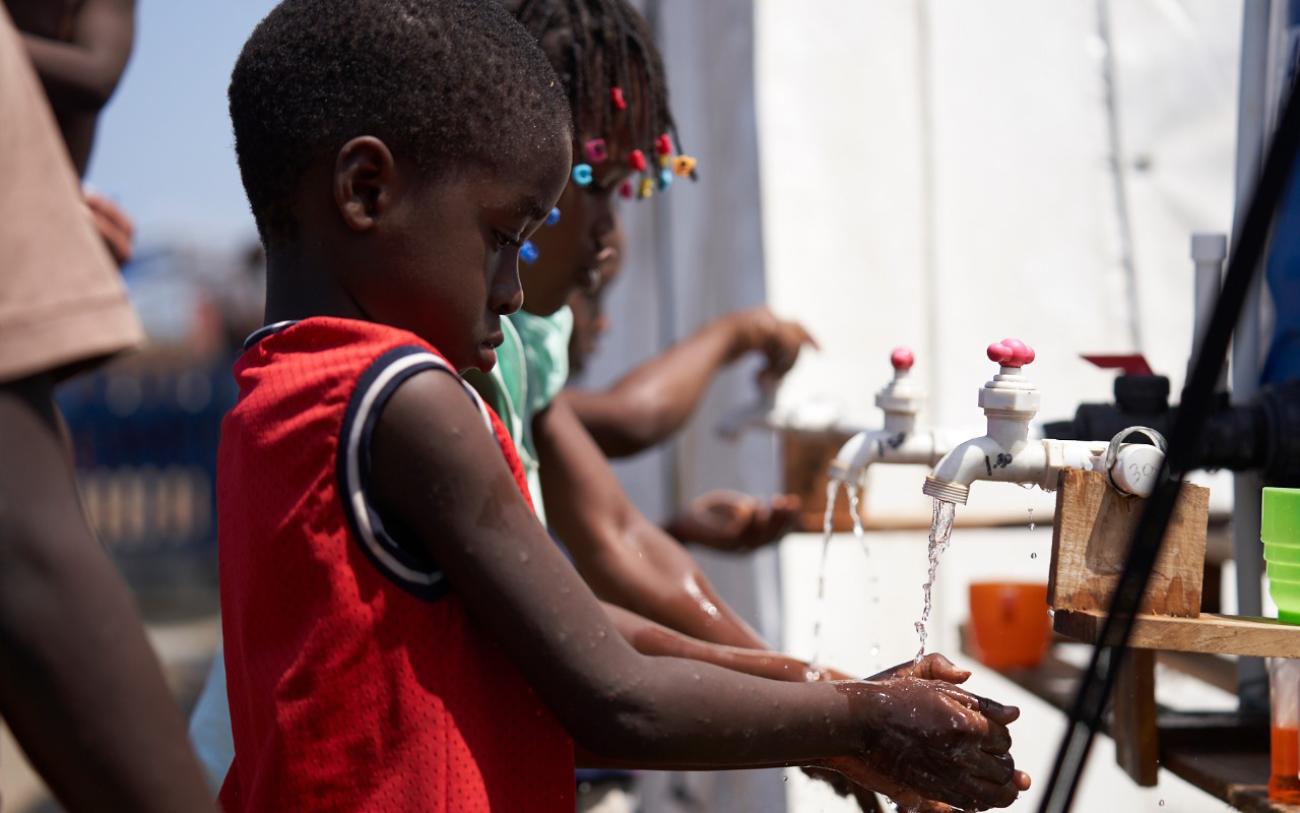
UN teams worldwide have come together with governments and partners to address COVID-19 and flatten the curve. We spotlight some of the coordinated response efforts as of 5 June 2020.
Eswatini
The Kingdom of Eswatini currently has 295 confirmed cases of COVID-19, with 201 patients having fully recovered and three deaths reported so far. The UN team in the country, led by Resident Coordinator, Nathalie Ndongo-Seh, continues to work with the Government, the people, and partners to flatten the curve and address the impacts of the pandemic.
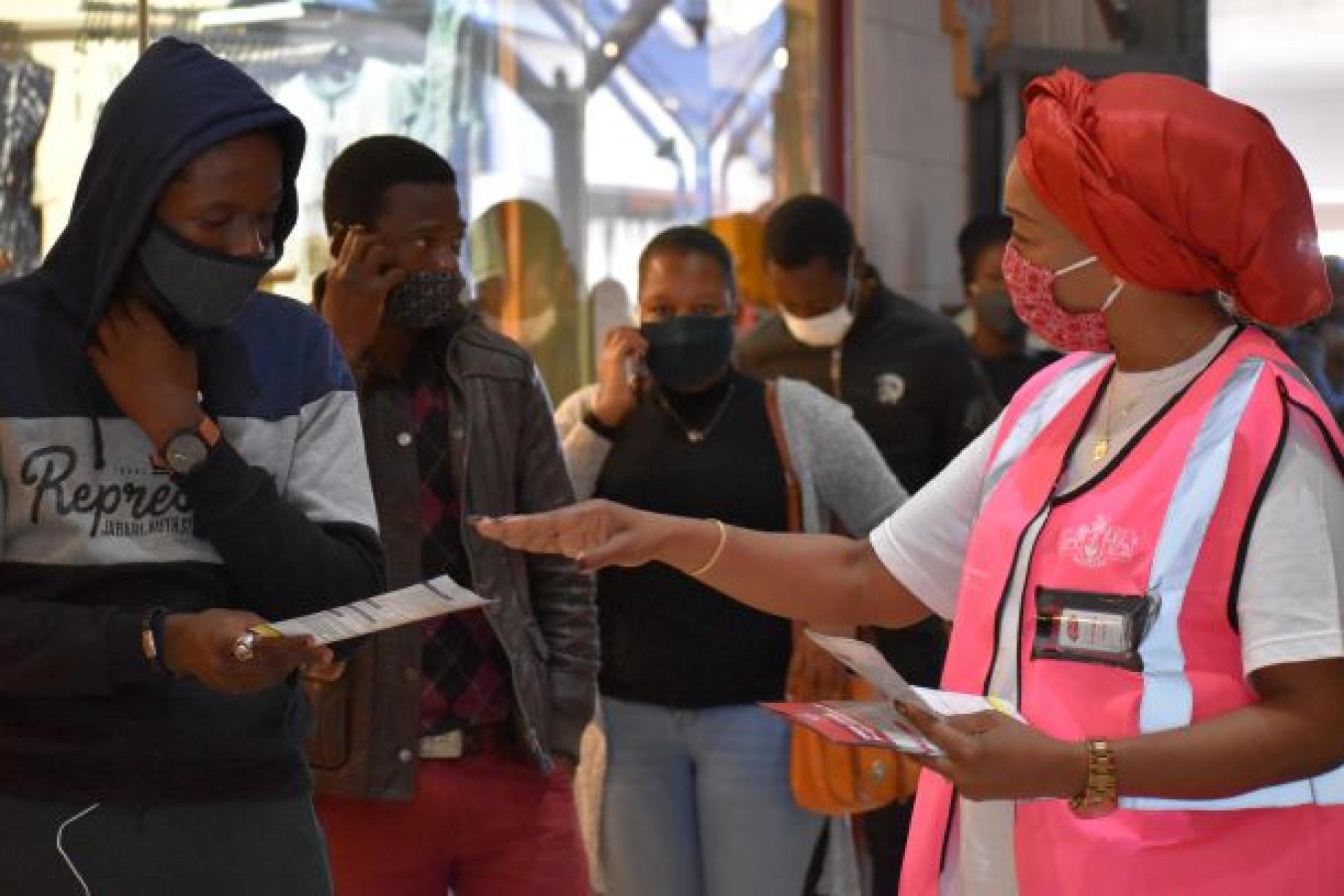
The World Health Organization (WHO) helped authorities update the COVID-19 Response Plan, including boosting contact tracing. Ahead of schools reopening on July 1st, WHO is preparing teachers and school staff on how to prevent and control the virus.
The UN is also supporting the Government’s communications efforts to reach out to communities and families, especially in hotspots across the country.
The UN Children’s Fund (UNICEF) has helped train more than 4,000 community health volunteers and has also worked to improve health facilities accommodating COVID-19 patients with mobile showers, toilets and handwashing facilities.
The UNICEF and the UN Development Programme (UNDP) have donated dignity and basic hygiene packs, water and sanitation supplies for children, youth and women in prisons and other detention facilities. For its part, the Joint UN Programme on HIV/AIDS (UNAIDS) has donated 5,000 hygiene packs to people living with HIV.
To combat misinformation and share fact-based, verified information, the UN team is also working closely with senior editors and reporters in Eswatini.
Ghana
In Ghana, there are more than 8,000 confirmed cases of the virus and 36 deaths.
As announced earlier this week, there is a new Resident Coordinator for the country, Charles Abani. The UN team continues support to the Government’s response and recovery.
UNDP has helped to ensure that nearly 800 health facilities across the country are complying with health and safety protocols. UNFPA has partnered with authorities on the Campaign to End Fistula.
The UN team there is also engaging with the youth, who represent nearly 60 per cent of the population. More than 200 young people from across the country have taken part in online sessions backed by the UN Educational, Scientific and Cultural Organization (UNESCO) to teach new skills and promote youth engagement and leadership.
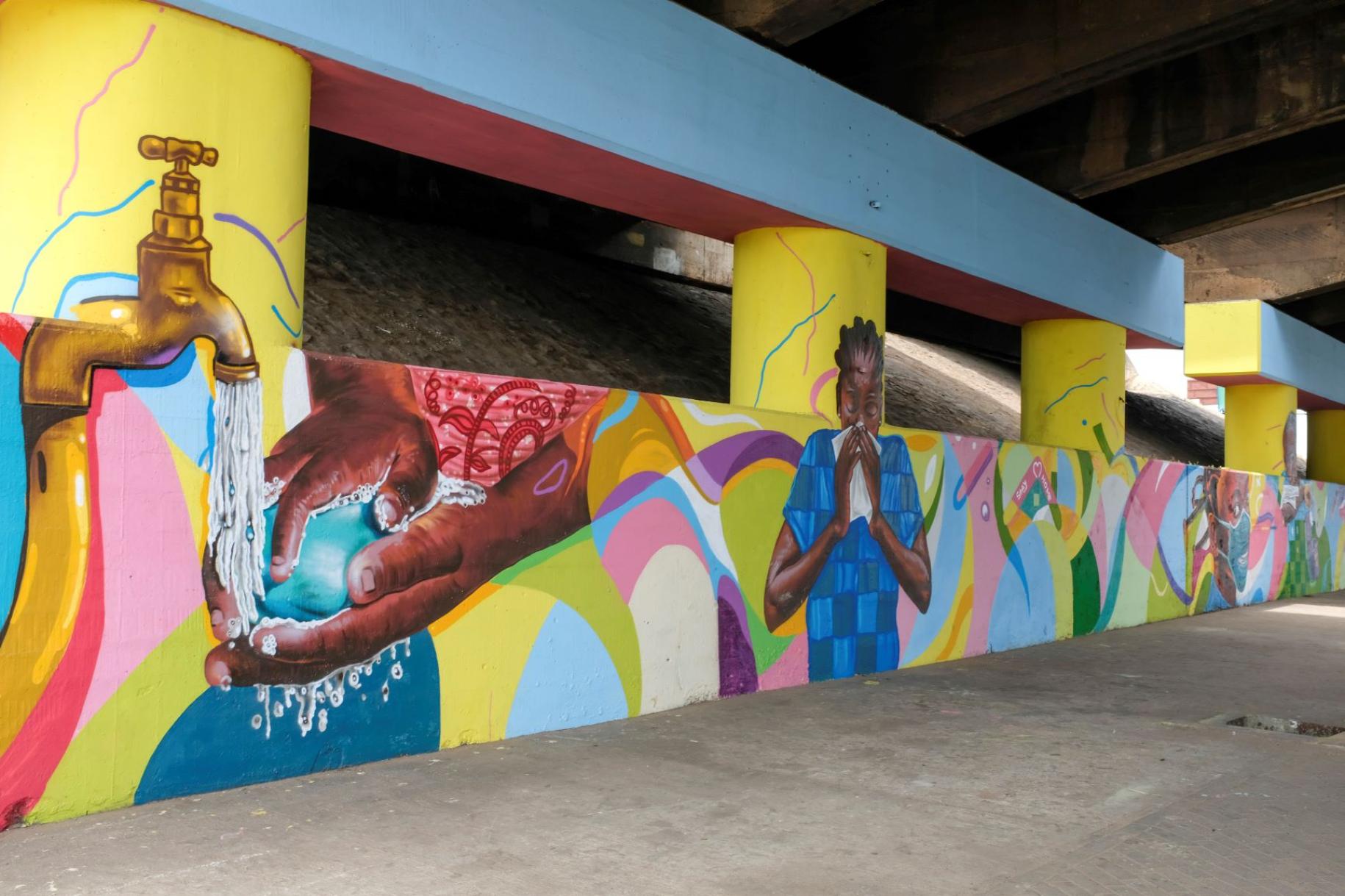
To support young artists, an initiative by the International Organization for Migration (IOM) and the EU is using street art to share prevention messages, as well as messages of hope and solidarity, with a special focus on the protection of migrants.
Guatemala
In Guatemala, where there are currently more than 4,700 confirmed cases and more than 100 deaths, the UN team on the ground has been supporting the Government’s emergency response to the virus. The team has provided $1 million from the UN Multi-Partner Trust Fund, which is the Fund announced by the Secretary-General for the socioeconomic recovery and response, alongside the UN socioeconomic framework.
The UN team, led by the Resident Coordinator, Rebeca Arias, is focusing on providing health services, protecting and training health workers and improving surveillance capacities. This includes improving lab capacity and boosting women’s access to health services.
The UN is working to protect human rights. This initiative includes guaranteeing decent quarantine locations for migrants who have returned to Guatemala. Several UN entities are involved in this, such as IOM, the Pan-American Health Organization (PAHO), the UN Population Fund (UNFPA), UNICEF, the UN Refugee Agency (UNHCR), the UN Human Rights Office (OHCHR), as well as UN Women.
UN entities and partners have donated an additional US$600,000 for medical, hygiene and protection supplies, as well as training, shelters, and communications campaign to prevent the spread of COVID-19. The UN team is also providing technical assistance and public policy advice to local authorities with sanitary measures, gender equality and human rights in the emergency.
The team is also working with journalists to prevent the spread of misinformation with UNESCO, PAHO and the UNDP. Together they trained 300 journalists on handling information as an essential lifesaving service.
Iran
In Iran, where there are currently more than 157,000 cases of COVID-19 and more than 7,900 deaths, the UN team, led by the Resident Coordinator, Ms. Ugochi Daniels, has been working with the Government and the people since the onset of the outbreak. And this aims to respond to the health, humanitarian and socioeconomic impacts of the pandemic.
The WHO team on the ground has provided arterial blood gas analyzers, virus test kits and other essential supplies to more than 100 laboratories and hospitals. It is also helping Iran contribute data to the Solidarity Trial, an international clinical trial to help find an effective treatment for COVID-19, which, as you know, was launched by the WHO and its partners.
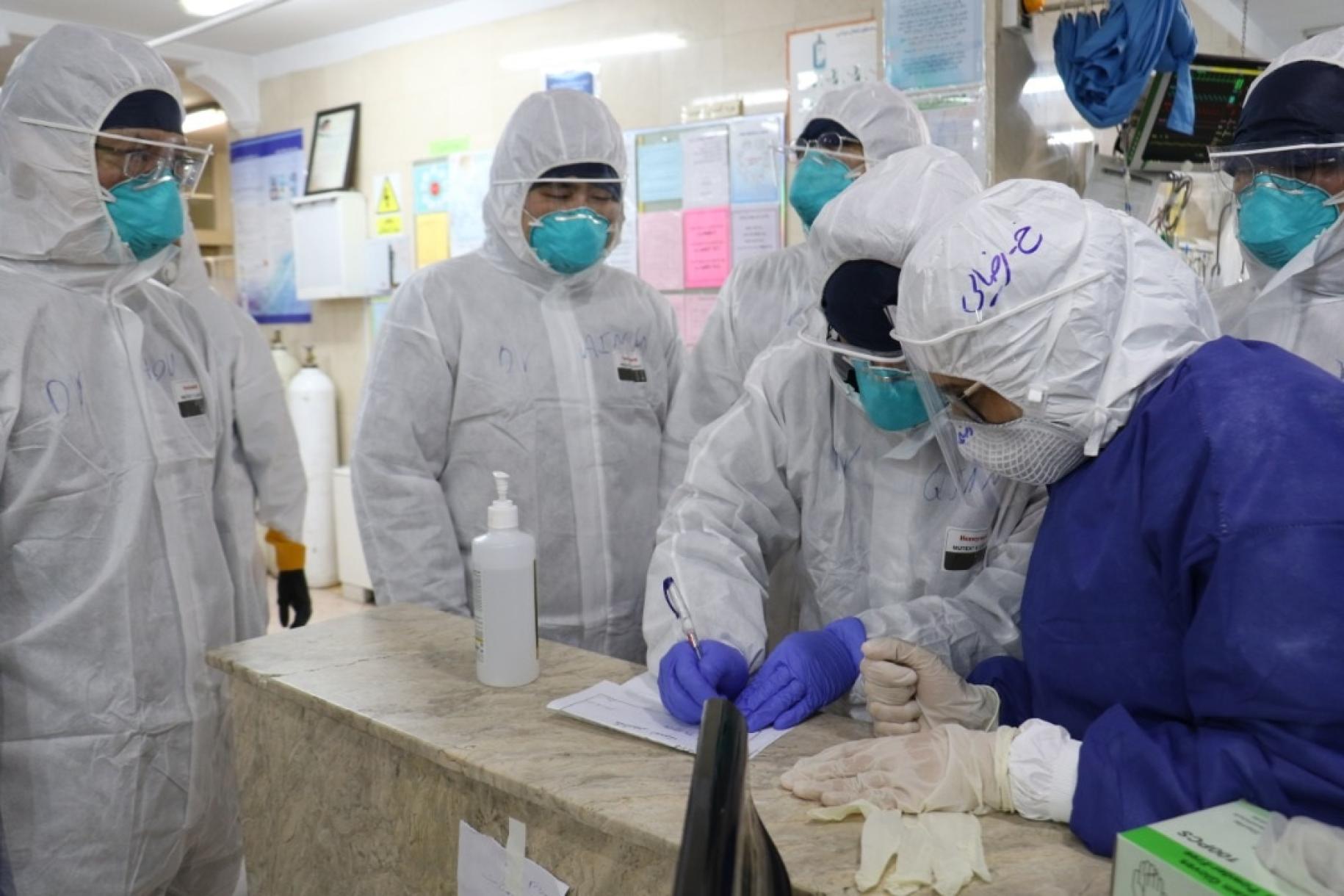
WHO, UNICEF and the UNHCR, along with the World Food Programme (WFP) have brought more than 76 tonnes of personal protective equipment for front line workers as well as people taking care of the elderly, children with disabilities, and other groups with special needs.
For its part, UNFPA, UNESCO, and the UN Office on Drugs and Crime (UNODC) are also helping the Government to assist women, girls, the elderly, and people living with disabilities, among others.
Other UN agencies, including UNHCR and WFP have provided hygiene items and food assistance to some of the 31,000 vulnerable refugees living in settlements, as well as protection supplies for aid workers. UNHCR is also providing psycho-social counseling and legal advice through helplines, while WFP provides cash assistance for those most in need.
Iran is the sixth largest refugee-hosting country in the world, with more than one million refugees, mainly from Afghanistan.
The UN team also proactively uses its bilingual website (English and Farsi/Persian) and social media channels to disseminate messages to curb the spread of the disease, with messages of solidarity and hope. Ms. Ugochi, the Resident Coordinator, has also been sharing messages against domestic violence and to combat misinformation.
Moldova
In Moldova, where there have been more than 8,300 confirmed cases and more than 300 deaths from the virus, the UN team there, led by Simon Springett, has developed policy briefs looking into the impact of the pandemic.
In collaboration with Oxford Economics, a new study shows that Moldova is more vulnerable to the impacts of the pandemic than most European countries. A decline in remittances deal a further blow to the economy, whose Gross Domestic Product (GDP) could drop around 8 to10 per cent.
The service sector is also deeply affected, with women – who comprise about 70 per cent of the labour force in that sector – are especially impacted. All the studies can be found on the UN Moldova website.
The UN has also contributed $1 million from our COVID-19 Response and Recovery Multi-Partner Trust Fund.
As part of an initiative funded by the United States (USAID), UNICEF is helping to procure and distribute supplies to maternity hospitals. It has also provided supplies to mothers with children living in penitentiary institutions, as well as to children in detention facilities.
Also, UNICEF is working with authorities to ensure continued education to the most disadvantaged children, including pre-primary and primary schools for children with disabilities.
UN Women has launched a campaign to inform businesses about the links between COVID-19 and gender inequalities.
Panama
In Panama, there are currently over 14,000 confirmed cases of the virus in Panama and over 350 deaths reported due to COVID-19, according to WHO. As the Government leads a process of gradual reopening, the UN team is working with the authorities and other partners to continue saving lives and livelihoods. Under the leadership of the acting Resident Coordinator, Cesar Nuñez, the UN team has donated personal protection and other medical equipment to the Government’s pandemic response.
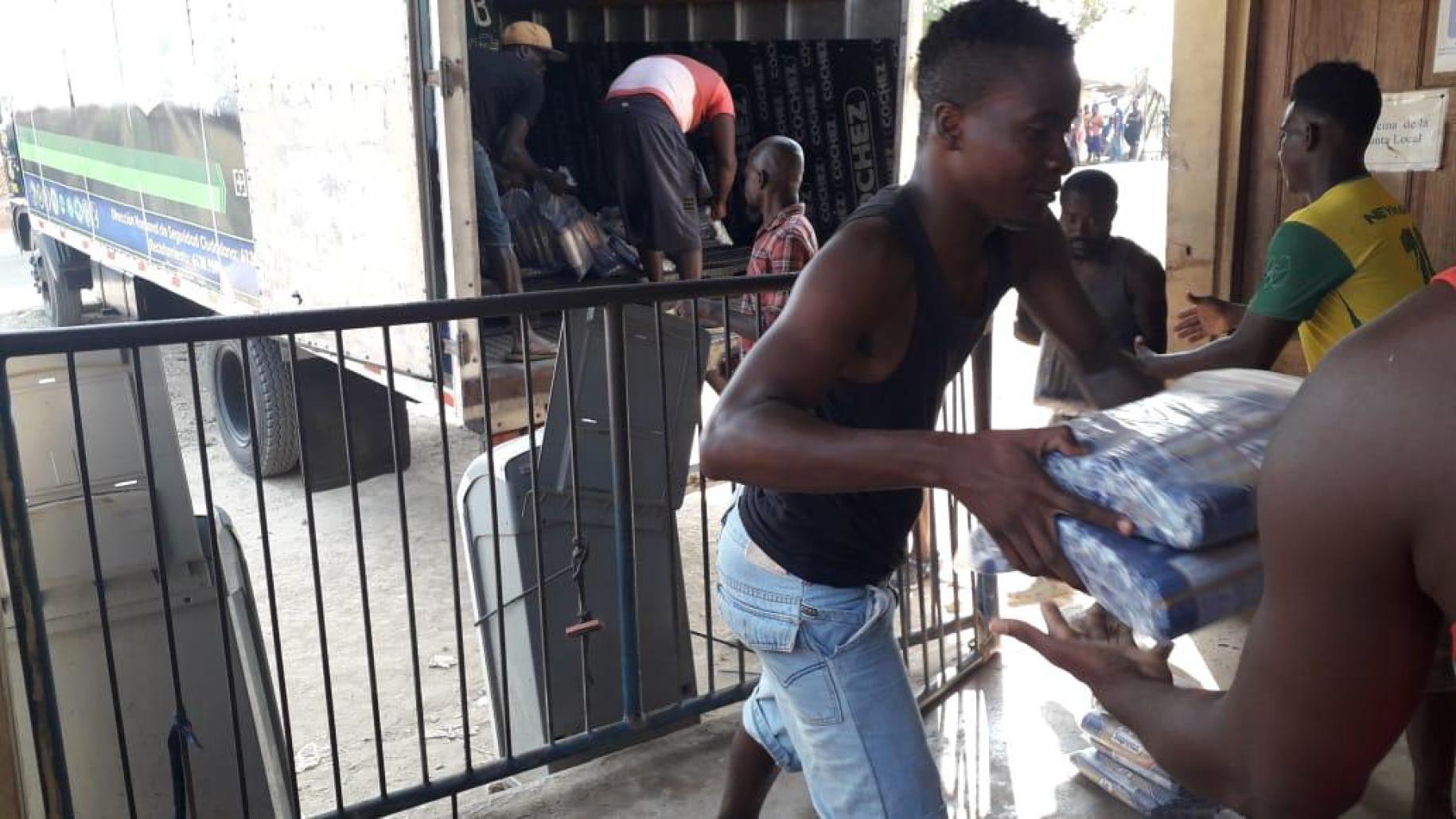
With the UNDP as technical lead, we have assessed the social and economic impacts of the pandemic. UNDP reports that the region expects up to a 25 per cent reduction in tourism. The Panama Canal Authority received 35 cruise cancellations, abruptly ending the cruise season.
The UN launched with the Government a communication campaign regarding violence against women. This is crucial, considering that Latin America and the Caribbean has one of the highest rates of gender-based violence in the world. The report also notes that the UN team will focus on protection vulnerable populations, including migrants and indigenous peoples.
UN entities, including UNODC, UNFPA, UNDP and UN Women, are donating hygiene kits for female detention centres in Panama. The UNODC and other entities are also supporting the male and juvenile detention centres across the country.
For its part, the UN Food and Agriculture Organization (FAO) is working closely with the authorities to guarantee the inclusion of indigenous peoples as part of the government food security assistance programme.
UNAIDs, UNFPA and UNDP are working closely with the Ministry of Health to guarantee having a continuous supply of life-saving treatment for people living with HIV, and that includes, of course, migrants.
Somalia
We move now to Somalia, where there are currently more than 2,000 confirmed cases and nearly 80 deaths from COVID-19. Even before the first case was confirmed on March 16th, the UN team in Somalia, led by Resident Coordinator Adam Abdelmoula, has been supporting the Government to prevent and contain the spread of the virus. The UN has helped the Ministry of Health purchase tests. WHO has trained health workers and provided medical supplies for the main hospital in Mogadishu treating COVID-19 patients.
WFP has airlifted humanitarian cargo to remote locations across Somalia and is supporting the Government’s efforts to prevent the spread of the disease.
For its part, UNICEF has reached nearly 560,000 people across Somalia with hygiene kits and emergency water supplies, among other items.
The UN has reached some [10] million people across the country with prevention campaigns over 21 radio stations. More than 25,000 posters in Mogadishu and more than 30 billboards have been installed across the country to curb the spread of the disease, in an effort led by the UN Office for the Coordination of Humanitarian Affairs (UNOCHA) and UNICEF. Through the Somalia COVID-19 Country Preparedness and Response Plan—a joint effort by the UN and partners, including NGOs—the team is supporting the Government to address the immediate public health and humanitarian needs, as well as the socioeconomic impact of the pandemic.

The UN Support Office in Somalia and the UN Assistance Mission in Somalia are working closely with the UN team to support the emergency response. This includes logistical support, such as transport of material and personnel and communications, with adapted joint programmes in rule of law and security to address the COVID-19 pandemic.





































